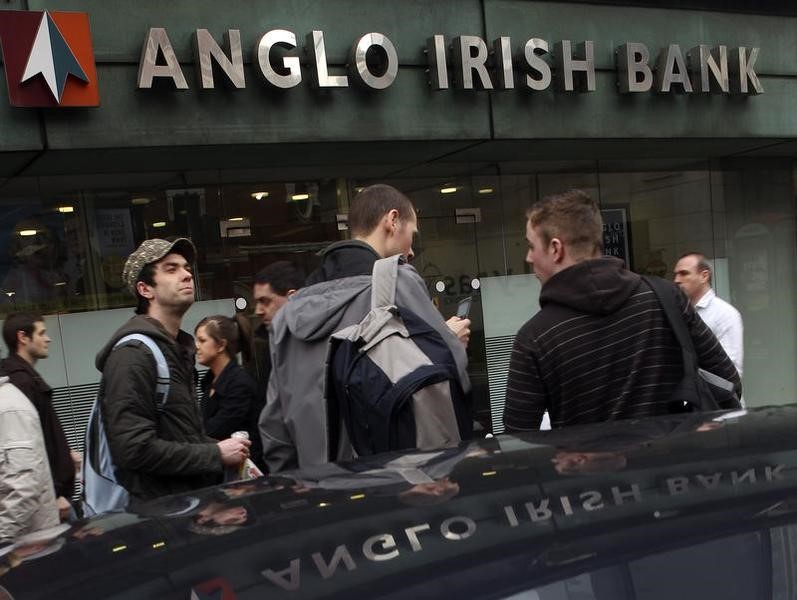DUBLIN (Reuters) - The Irish government on Wednesday announced a judicial investigation into the company charged with winding down the failed Anglo Irish Bank, widening an earlier review due to fresh allegations about its conduct.
The inquiry was called after public concern was heightened when a lawmaker accused billionaire press baron Denis O'Brien of obtaining sweetheart bank loans from the company, Finance Minister Michael Noonan said.
Noonan had asked the liquidators of state-owned Irish Bank Resolution Corp (IBRC) - the vehicle that was winding down Anglo's loans until its own liquidation in 2013 - to review any transactions that featured significant debt writeoffs.
He said on Wednesday that a review was no longer sufficient.
The inquiry, which has until the end of the year to present its findings, will now also examine whether interest rates or any extension to interest rates were given by IBRC on preferential terms unduly favourable to borrowers.
"There are so many allegations now, and so many reputations have been challenged, it's important that a judge would preside over a full commission of investigation," Noonan told national broadcaster RTE.
"There's no evidence underpinning any allegations but there's public disquiet, it's increasing and it's in the public interest to have these matters fully investigated."
Last week, independent lawmaker Catherine Murphy stood up in parliament to accuse telecoms billionaire O'Brien of paying a below-market interest rate on outstanding loans in excess of 500 million euros (£367.4 million).
The former chairman of IBRC and O'Brien deny any wrongdoing. O'Brien accused Murphy of repeatedly making erroneous and untruthful statements about his banking relationship.
The lender at the heart of Ireland's 2008 financial crisis, the failure of Anglo cost the state 30 billion euros as part of the most expensive bank bailout in the euro zone.

IBRC also sold off loans belonging to Irish Nationwide, a much smaller lender that Anglo, but just as closely associated with the casino-style practices that obliterated the banking sector and led Ireland into a 2010 international bailout.